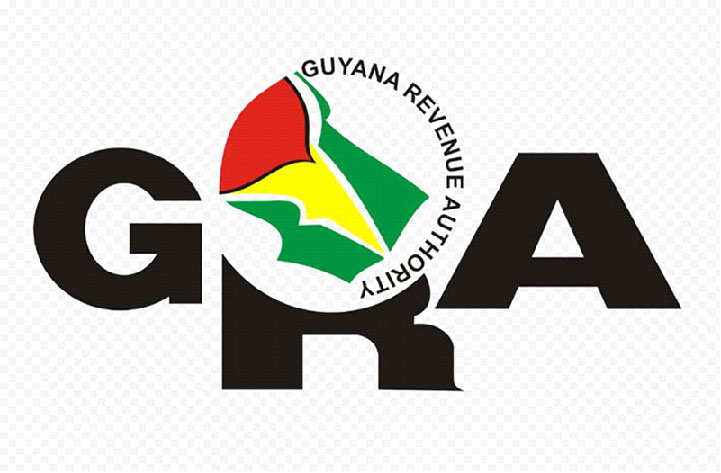Following an upsurge in complaints from buyers of reconditioned vehicles, the Guyana Revenue Authority will from January 1st next year require that an inspection certificate be provided from their place of import and given to it by the salespersons here.
However, vehicles already purchased and shipped prior to January 1st 2025 will not be affected by the new rule.
Commissioner-General of the GRA Godfrey Statia told the Sunday Stabroek that there has been a proliferation of problems recently, ranging from mileage changes to defective engines and other parts.
The new implementation plan has seen a push back from local car dealers with some wanting to have the period extended to March of next year while others have asked for it to be scrapped.
“Emanating from the numerous consumer complaints and in an effort to curb the importation of “Lemon” motor vehicles into Guyana and further to a meeting held with the GRA and importers and auto dealers on December 4th 2024, all are hereby notified that with effect from January 01, 2025, for purchases of vehicles, an inspection certificate signed and issued by a competent Authority in the country of export, to the satisfaction of the GRA, IS REQUIRED FOR THE IMPORTATION OF USED MOTOR VEHICLES (Expect brand new vehicles),” a notice from the GRA which was published yesterday stated.
“This inspection Certificate which must be dated, must be uploaded along with all other pertinent documents in ASYCUDA to process the respective customs declarations. All licenced customhouse Brokers are also notified to liaise with their respective clients and ensure that the inspection certificate is included when the declaration is submitted ASYCUDA,’ the notice adds.
A `Lemon’ car is one with a significant defect or malfunction that makes it unsafe to drive.
GRA’s notice says that failure to submit the inspection certificate “may result in the Customs Declaration not being processed or the vehicles not being released.”
Car sales here have surged over the past five years.
This newspaper understands that the Competition and Consumer Affairs Commission has received myriad complaints and subsequently published a motor vehicle buyer’s handbook and guide which was shared with the GRA last year.
A number of cases have also been highlighted on social media platforms naming auto dealers.
GADA
The Guyana Auto Dealers Association (GADA) on Thursday wrote to the GRA asking that the measure be revisited so that only auto dealers found guilty would have to supply the certificate.
“On December 4th an advisory was advertised by the GRA stating Auto Dealers and importers are required to submit an inspection certificate from the country of export with effect from January 1st 2025. It was also stated that a meeting was held with GRA and Auto dealer and importers. However no member of the Guyana Auto Dealers Association was invited this meeting,” the GADA letter stated.
“The cost for an inspection certificate is approximately US$300-$600 which would increase the cost and selling price of motor vehicles. It would be fairer to us if only delinquent dealers are penalized for their actions and one by one added to a list that requires an inspection certificate. A fairer approach to consider is implementing relevant procedures to check imported vehicles when they arrive in Guyana. This would allow for vehicles to be repaired if necessary and inspected before being registered. If not, they are asking for an extension to the January 1st deadline,” it added.
The GADA said that they believe that a large portion of the vehicles that have had problems are coming from “self-importers and bottom house dealerships as well as shipping agents who are ordering vehicles for customers operating as auto dealer”.
GADA believes that approximately 60% or more of the motor vehicles being imported into Guyana are vastly unregulated.
“This practice is somewhat dangerous and allows vehicles to enter Guyana and bypass all the government-set safety protocols such as the consumer association and Guyana (National) Bureau of Standards as the sellers are foreign based companies and are not under the jurisdiction of these safety agencies, hence they offer no warranty or no after-sales services at all. When those sellers sell to the average customer, it is done deal as a 100% of the money is sent before the vehicle arrives and after arrival the freight and customs duty are paid,” it said.
Last year November, the Competition and Consumer Affairs Commission (CCAC) launched a “Motor Vehicle Buying Guide” to assist consumers in making the best decisions when considering the purchase of motor vehicles.
It had said in a release that it was another effort by it to provide helpful information to consumers based on its analysis of the number and value of complaints received about the auto industry.
Up to the time when the guide was published, some 431 complaints were received, to the value of $409,204,942, and of this total, 109 were received for the auto industry to the value of $256,270,937.
Some of the areas the guide covers are steps to take before shopping for a motor vehicle, the development of a financial plan, the supplier’s compliance with the Consumer Affairs Act, online reviews of the supplier, tips when purchasing a reconditioned vehicle, essential tips when purchasing a motor vehicle from a dealer outside of Guyana, vehicle warranty and a brief overview of the Hire Purchase Act.
The CCAC encourages consumers to seek redress through the Commission when there are issues of perceived conflict with auto dealers. Complaints can be filed via the website ccac.gov.gy.










